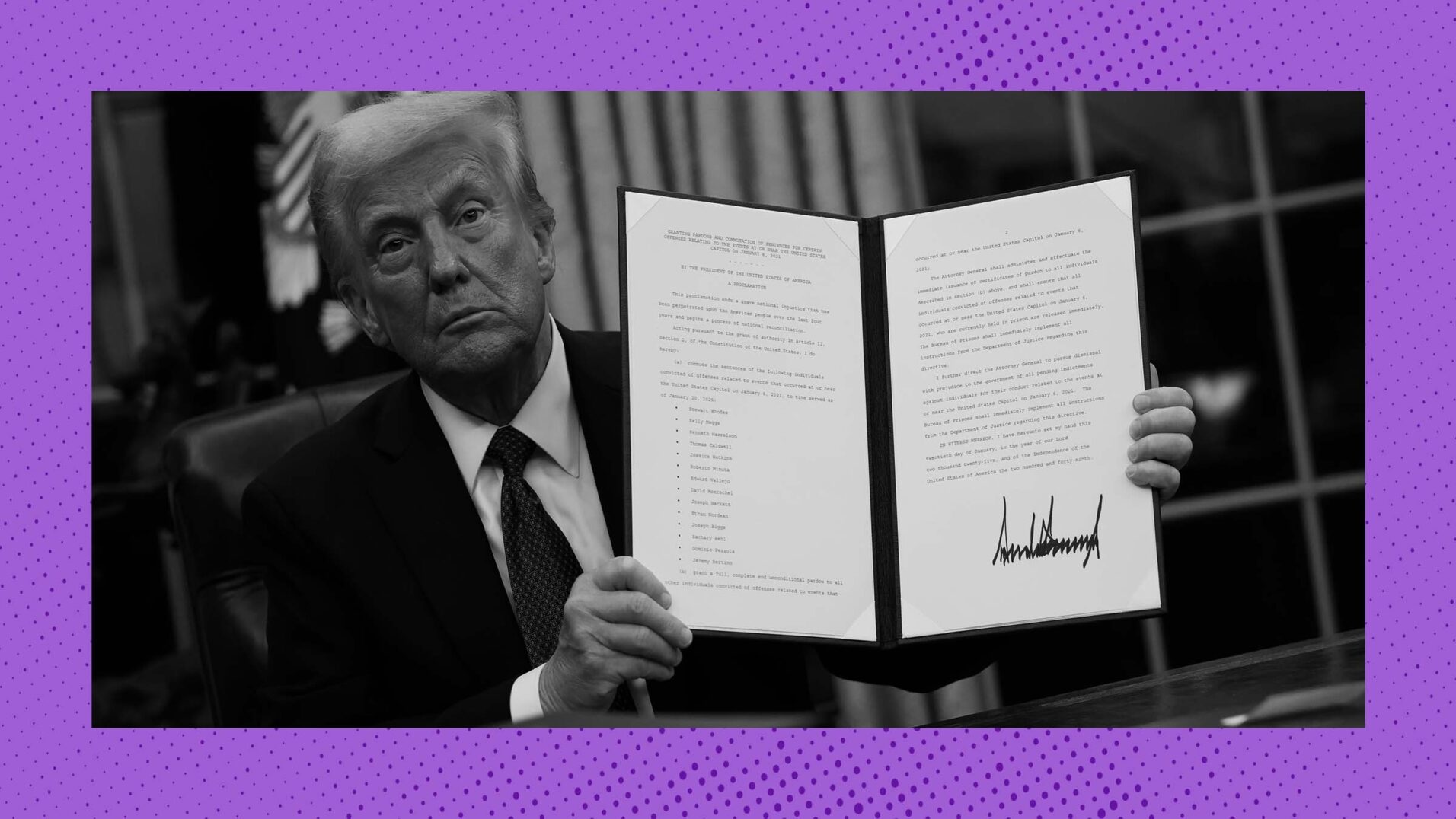Trump Will Never Run Out of Ways to Humiliate the Firms That Caved to Him - Balls and Strikes' Jay Willis
Balls and Strikes

On Monday, President Donald Trump signed an executive order pledging to “unleash high-impact local police forces” across the country, thereby empowering officers to “aggressively” enforce the law. It promises a “surge” of federal resources to boost officer pay, to expand programs that allow police departments to procure surplus military equipment, and, for good measure, to “promote investment in the security and capacity of prisons.” Finally, a president who understands the most serious threats to public safety in America: shrinking-violet cops who feel a little too accountable, and a prison system that needs more cells.
The order also directs Attorney General Pam Bondi to ensure that cops who “unjustly” face liability “for actions taken during the performance of their official duties” have the legal and financial resources they need to defend themselves. But instead of having the Justice Department do this work itself, the order farms it out to the array of BigLaw firms that have fended off punitive executive orders by, among other things, pledging to donate millions of dollars’ worth of pro bono hours to the president’s pet projects. What this means is that the firms who rolled over to Trump’s demands could soon be fulfilling their contractual obligations by providing free legal counsel to cops who kill unarmed people.
When Trump began announcing these deals, many firms downplayed the real-world significance of their decisions to capitulate, framing the details as insignificant footnotes to artfully negotiated resolutions of crises that could have put the firms out of business. According to The New York Times, management at one firm assured colleagues that they would remain “completely free” to accept or reject pro bono matters as they saw fit; another said that the contemplated pro bono collaborations would advance causes that the White House and the firm “both support.”
Trump, to the surprise of no one except the firms who signed on the dotted line, interpreted the intended scope of work much more narrowly. In his view, these firms are now foot soldiers for the Republican political agenda, at his disposal for negotiating trade deals, drafting coal industry leases, representing him in court, and obediently completing any other projects he assigns. Requiring these lawyers to also defend trigger-happy sheriff’s deputies is the perfect distillation of his campaign to bring the legal profession to heel: leveraging the continuing threat of state sanctions for the benefit of other state actors who abuse their power just as gleefully.
